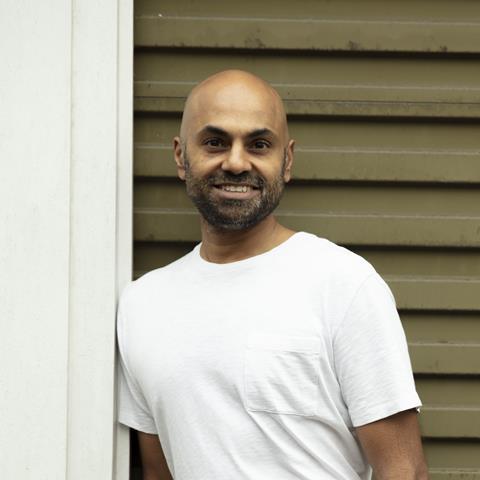Whisper chief executive Sunil Patel talks about going back to his roots to work on the British Grand Prix
The weather is turning, social is awash with kids in over-sized blazers, and the diary - and the office - is back to brimming.
There is that distinct September ‘back to school’ feeling - recharged and refocused - ready for another busy end to the year. Although, with the amount of work the Whisper has been getting through over the summer - Roland-Garros, British Grand Prix, Wimbledon, British and Irish Lions, esports with EA, reality and entertainment projects out of Whisper North plus the return of Wheel of Fortune and, currently, the Women’s Rugby World Cup - many of the team might not recognise the recharged bit.
Working in a senior role in the media industry, it’s sometimes easy to forget what a privileged position you hold. Don’t get me wrong, it’s hard work for all and there are plenty of challenges, but the opportunities I was afforded (and took) sometimes seem the product of simpler and more straightforward times. You got in early, said yes to everything, hoped to get noticed, and progressed accordingly.
That’s why earlier this summer I took the opportunity to return to the ‘shop floor’ and take on the role of VT coordinator for one of Whisper’s biggest weekends of the year - delivering Channel 4’s live coverage of the F1 British Grand Prix. It was a job I’d done for many years at the BBC and one I always loved.
But there were other reasons I wanted to roll back the years. Inspired by CEOs like Lufthansa’s Jens Ritter, I thought it would give me a real insight to how we are operating in the engine room - what processes were working well, where we could improve the end product, and how we could better support our people delivering on the frontline for our partners.
Working out of our remote production facility, the Cymru Broadcast Centre (CBC), in Cardiff, what really struck me was how Whisper’s commitment to invest in bricks and mortar has created more pathways for people keen to make their way in the industry. It’s the same in Kew, where we have just opened a new studio space dedicated to producing content for our long-term partners, EA Sports.
We must not forget that we are a comparatively young industry. And one that has, certainly in the past, been guilty of hiring practices that haven’t encouraged accessibility and diversity. I remember my early days hearing a lot of the same surnames and schools mentioned among interns and in the junior ranks of media companies. It’s got a lot better but there’s more to do.
In the short behind-the-scenes film we made about my time back on the tools, my role was quite rightly eclipsed by two great women at different points in their career. First, Carys Owens, our brilliant MD of Whisper Cymru talking about what delivering nations and regions looks like when done properly, and the fact CBC is the most accessible remote production facility in Europe - all achieved under her leadership alongside a committed team. And the absolute star of the show, Daniella Clarke, who joined Whisper 18 months ago with no production experience and has now worked on the Paralympics, BBC Sports Personality of the Year, and now the British Grand Prix. As Daniella puts it - “It’s been my dream…”.
That’s why my biggest takeaway from my weekend in Cardiff - apart from realising that I am past my prime as a VT coordinator and I need a great team around me - is the imperative for Whisper to not only keep providing those pathways like the Whisper Academy, our mentorship schemes, and internship programmes with our partners, but to do more in terms of mapping out clear routes for career progression, to keep innovating to attract people for a broad range of backgrounds, to work even harder to retain our best people, and to treat the freelance community as just that; a community to be nurtured and respected. This isn’t pure altruism - creativity, authenticity, and productivity outcomes are all improved.
Companies like Whisper and leaders like me are in that privileged position, so it’s our responsibility to take ownership of issues like this, set standards, and deliver against them. It’s a learning experience for us as well, and we don’t always get it right. The key is to keep trying, refining and developing, because when you’re dealing with people’s dreams, it’s a responsibility we must take seriously.

- Sunil Patel is CEO of Whisper








No comments yet